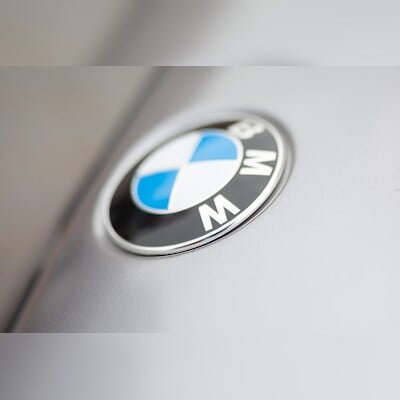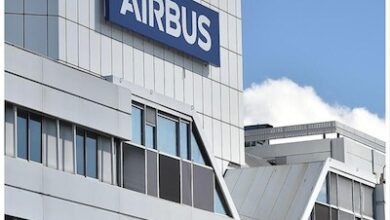BMW sales drop due to China’s EV, CEO asks to cancel new fossil ban plan | World News

)
BMW’s sales in China slumped by a third while Mercedes’ fell by 13 per cent. (Photo: Shutterstock)
Sluggish demand and stiff competition in China hit third quarter sales at BMW and Mercedes, the German luxury automakers said on Thursday.
The German car sector is facing multiple challenges, ranging from high production costs and managing the shift to electric vehicles to falling demand and rising competition from China.
Click here to connect with us on WhatsApp
The troubles have been illustrated most recently by a cost-cutting drive at Europe’s biggest automaker, Volkswagen , which is considering plant closures in Germany for the first time.
For the July-September quarter, BMW’s sales fell 13 per cent, while Mercedes reported a 3 per cent drop.
Demand in China, the world’s biggest auto market, is suffering from a flagging economy, while foreign carmakers face stiff competition from local manufacturers offering cheaper models, especially EVs.
BMW’s sales in China slumped by a third while Mercedes’ fell by 13 per cent.
Mercedes also noted a subdued global battery electric vehicle (BEV) market, reporting a 31 per cent BEV sales drop. For BMW, BEV sales rose 10 per cent in the quarter.
The European Union has recently imposed hefty tariffs on Chinese-made EVs, saying they benefit from unfair state subsidies. Beijing denies this and has threatened retaliation, while German automakers, which make about a third of their profits in China, have voiced concern and called for more talks.
European consumers are reluctant to buy more expensive EVs, in part because of patchy charging infrastructure.
Shares in BMW and Mercedes were flat after the sales data.
The companies cut their annual forecasts in September citing a sluggish Chinese market, while BMW also mentioned problems with a braking system supplied by Continental.
Europe must cancel its plan to ban new fossil fuel-emitting cars from 2035 to reduce reliance on China’s battery supply chain and play to its technological strengths, BMW’s chief executive said on Tuesday.
Oliver Zipse, who has long pushed for regulators to permit various technologies – including alternative fuels like e-fuels or biofuels and hydrogen fuel cell cars – said the mood in Europe was “trending towards one of pessimism” and the region needed a new regulatory framework to remain competitive.
“A correction of the 100% BEV target for 2035 as part of a comprehensive CO2-reduction package would also afford European OEMs less reliance on China for batteries,” Zipse said at the Paris Motor Show, adding: “To maintain the successful course, a strictly technology-agnostic path within the policy framework is essential.”
In March 2023, EU countries approved a landmark law that would require all new cars to have zero CO2 emissions from 2035, effectively banning diesel and petrol vehicles, and 55% lower CO2 emissions from 2030, compared to 2021 levels.
Carmakers including BMW, VW and Renault have called for the CO2 targets to be loosened or delayed, fearing the impact of heavy fines because of lower-than-expected EV sales.
Still, Zipse’s home country of Germany has rejected an early review of the targets, given the need for clarity for industry and the urgency of tackling climate change.
(Only the headline and picture of this report may have been reworked by the Business Standard staff; the rest of the content is auto-generated from a syndicated feed.)
First Published: Oct 15 2024 | 2:54 PM IST




